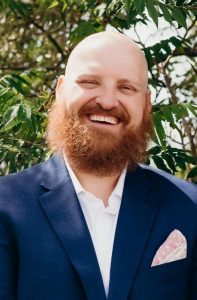Mark Eaton — Live Life to Its Fullest
June 7, 2021
An unexpected death has a way of shaking people and causing them to contemplate their own lives. When news started to leak out about the passing of former Utah Jazz legend Mark Eaton, the stories of his impact and how he lived his life with a purpose and drive poured in. A common theme emerged in these stories; Eaton had time for everybody and always offered a kind word, whether he knew you personally or if you just stopped and asked for a photo with the big man in the middle.
Personally, I was lucky enough to have two interactions with Eaton. Standing seven feet, four inches and nearly 300 pounds, Eaton had an imposing presence. As a teenager, I ran into him at a Jazz game. It would have been easy for him to just say “hi” and keep moving. Instead, we chatted for a few minutes. My biggest takeaway from that interaction? If Eaton spoke to you, you were his entire focus in that moment. He devoted his attention to that conversation and made me feel important, if only for a few minutes.
Eaton will be remembered as a Utah Jazz legend by many and for good reason. His career average of 3.5 blocks per game still stands as an NBA record, as does his 5.6 blocks per game in the 1984-85 season. For context, current Jazz center Rudy Gobert has averaged 2.2 blocks per game and his career high for a single season (2.6) is less than half of Eaton’s. Eaton’s place in Jazz history is secured as his number (53) will hang in the rafters of Vivint Arena in perpetuity.
Eaton was so much more than just a basketball player. A successful businessman, motivational speaker and author, Eaton remained in Utah after his playing days and became a fixture in the local community. An outdoor enthusiast, Eaton stayed in great shape after his playing days by riding the many mountain bike trails of Utah in the summer, and skiing almost daily during the winter.
Prior to his NBA career, Eaton worked as a mechanic before joining Cypress Junior College in California, having been found and recruited by Cypress basketball assistant coach Tom Lubin. The two years at Cypress were followed by two seasons under the tutelage of the legendary John Wooden and that lit a fire under Eaton to maximize his basketball ability, no matter what it took.
After his playing career, Eaton channeled his experiences into a book, “The Four Commitments of a Winning Team.” These commitments were seemingly simple, but Eaton understood the mindset it required to achieve his goals and spent his post-playing career sharing his goals and process for achieving them. The four commitments are as follows.
1. Know Your Job
Thanks to some guidance from Hall of Fame NBA center Wilt Chamberlain, Eaton recognized what his job was on a basketball court. Protect your teammates by using that seven-foot-four frame to block shots and provide a constant presence in the lane.
From John Stockton to Karl Malone, Eaton’s teammates praised the peace of mind gained from having Eaton behind them, taking away easy layups from their opponents. Now fourth on the NBA all-time leaderboard for blocked shots at 3,064, Eaton was one of the best paint protectors in NBA history.
2. Do What You’ve Been Asked To Do
At UCLA, the Bruins’ fast-paced style of play didn’t fit with Eaton’s skill-set, meaning he played sparingly. Eaton grew frustrated and nearly quit basketball during this time.
Despite the struggles, Lubin encouraged Eaton to stick with it.
“If you can’t play in the games, then practices are now your games,” Lubin said. “You’ve got to get as much training as you can. Take the long-term perspective.”
Eaton would put his head down and continue working to improve his ability. Knowing that with hard work and understanding his role, the opportunities would come.
3. Make Other People Look Good
This is perhaps Eaton’s best skill. When Eaton began his NBA career with the Utah Jazz, Frank Layden was the head coach and the Jazz had never sniffed the playoffs as a franchise. While Layden worked to instill a winning culture, Eaton grew to embody each of the team-first traits Layden sought from his players, the consummate teammate that concerned himself with the success of the team more than his individual numbers.
Eaton became a cornerstone of a Jazz team that would, beginning in his second year, reach the NBA playoffs for 20 straight seasons.
4. Protect Others
Eaton built a career around protecting his teammates. Blocking the shots of opponents that had beaten their man on the perimeter, “Big Mark” instilled trust in his teammates by always having their backs. Without trust, people won’t take risks. Without occasional risks, it’s difficult to be the best version of a team.
Eaton’s death was a surprise that sent shockwaves across the sports world, but Eaton died doing what he loved, riding a bicycle around the neighborhood. Around 8:30 p.m. on the evening of May 28, Eaton kissed his wife Teri goodbye and said he was going out for an evening ride. Minutes later, he was found unconscious in the roadway.
Few people truly live in the genuine and honest way that Eaton could. He was just as comfortable in a boardroom of a Fortune 500 company as he was in a local Park City coffee shop. Mark Eaton, gone too soon at the age of 64. Jan. 24, 1957-May 28, 2021.








